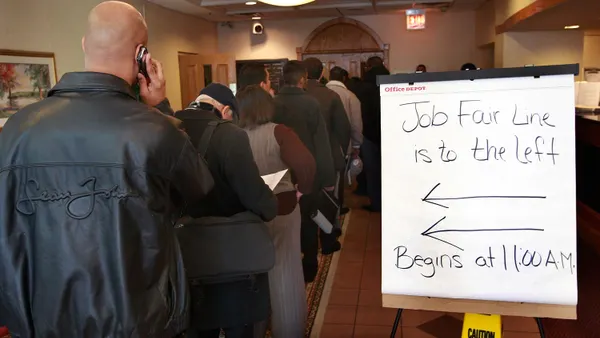For better or for worse, hybrid work has cemented itself as a model for many. As HR leads balance talent working from home, the office, or anywhere in between, they may need to be vigilant against an emerging form of discrimination.
“Workplace proximity bias” is the term commonly used to describe employer prejudice against remote workers. This may manifest as stagnant promotion cycles for talent at home, or managers intentionally or unintentionally guarding excellent career opportunities from remote employees, experts have said.
During her session at the Society for Human Resource Management’s 2022 conference, global HR strategist Sonia Aranza said employers should be more intentional in trust-building to ensure longevity in hybrid work setups. Aranza encouraged HR leads and managers to assess who gets to choose remote work, whether the remote choice affects promotion cycles, and how and for whom management tactics like surveillance are used.
Likewise, in a July 2022 statement for Robert Half, Senior Executive Director Paul McDonald noted that "trust and open communication are essential” for the flexible future of work. "Employees need to show they can manage their time by meeting deadlines and being available to collaborate,” he said. “And in turn, managers need to lead by example and evaluate performance based on achieving business and individual goals."
This ethos aligns with that of Dr. Jessie Wisdom, co-founder of employee engagement platform Humu, against proximity bias. She told HR Dive that business leaders can check if an employee’s work is “actually going poorly;” this type of audit can also answer the question of whether folks in the office are being promoted at higher rates than those working from home.
“When you're considering who to promote or who to put on a choice assignment, instead of saying, ‘Oh, I can think of this person… They're top of mind because I saw them around,’ you can actually sit down and list every single person on your team, or who's eligible,” Wisdom said. “[Ask yourself] ‘Who is the right person, who has the right skills, who needs the opportunity?”
Considering that work-from-home arrangements have enabled women, often primary caregivers, greater opportunity to balance their dual responsibilities, and have given people of color safe havens against microaggressions and in-person harassment, proximity bias is also an equity issue.
Focusing on skills over proximity as an eligibility requirement can mitigate what Wisdom refers to as an “out of sight, out of mind” phenomenon.
“You can measure in a way that's really fair and not based on things like how much time you spend in the office. Right? Which doesn't matter to the end outcome,” she said.
Per Wisdom’s suggestion, HR pros can collect data on which employees feel included, broken down by work model, as well.
























